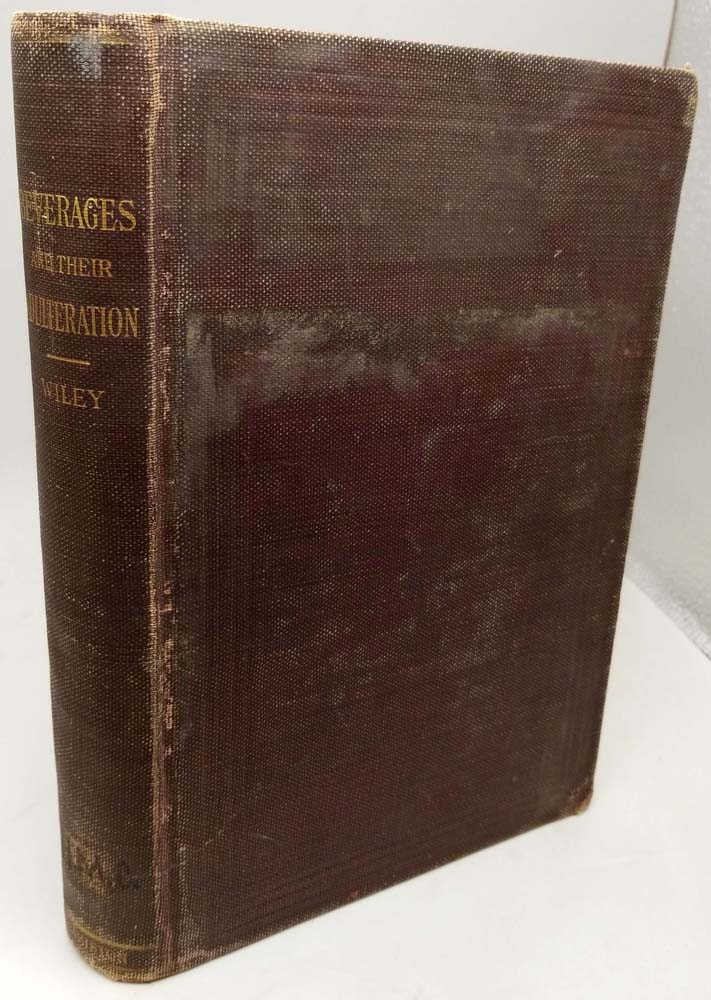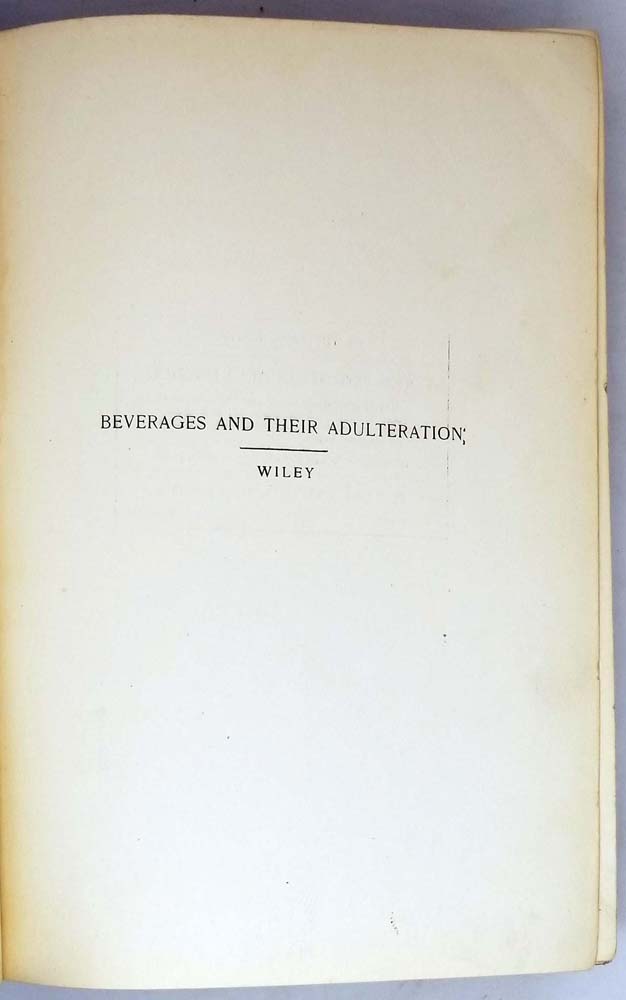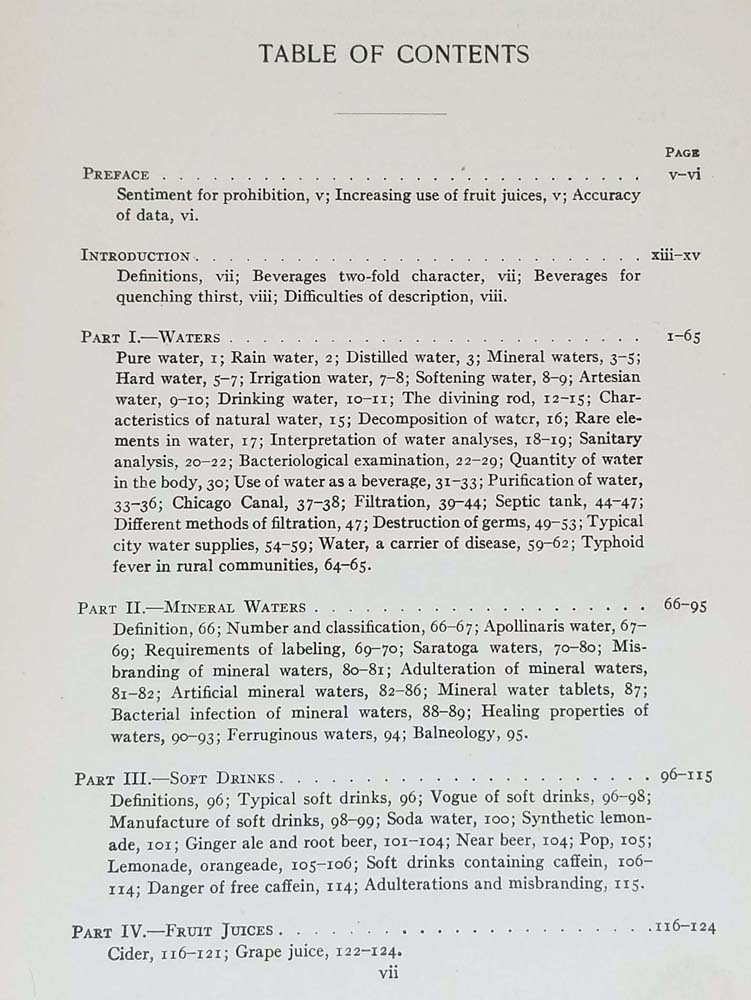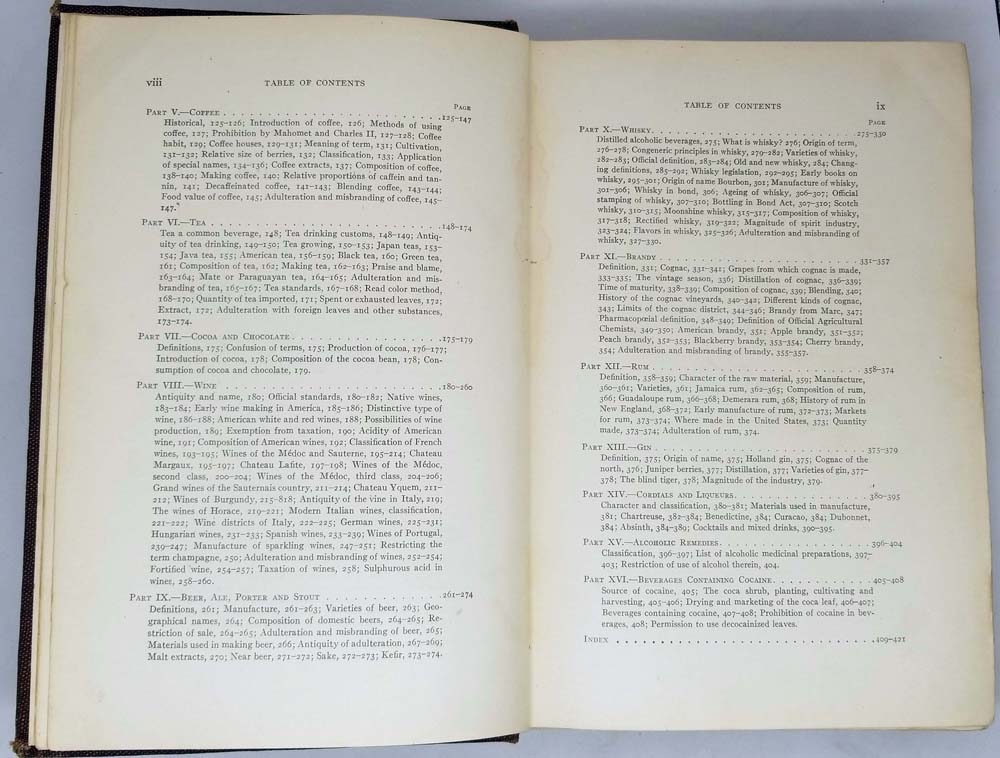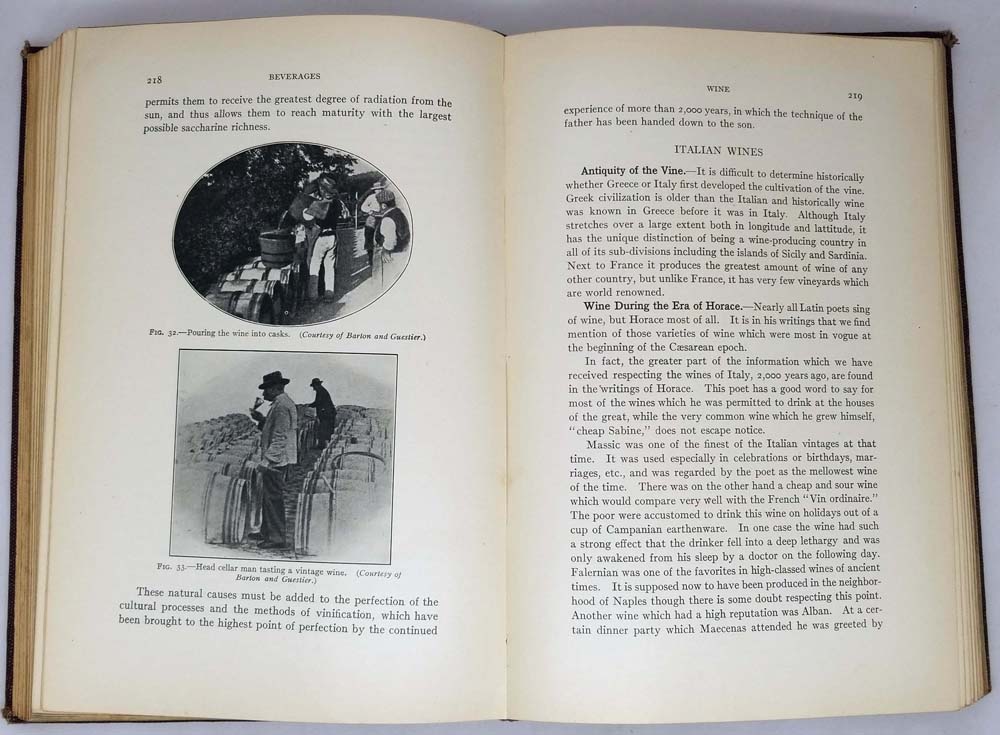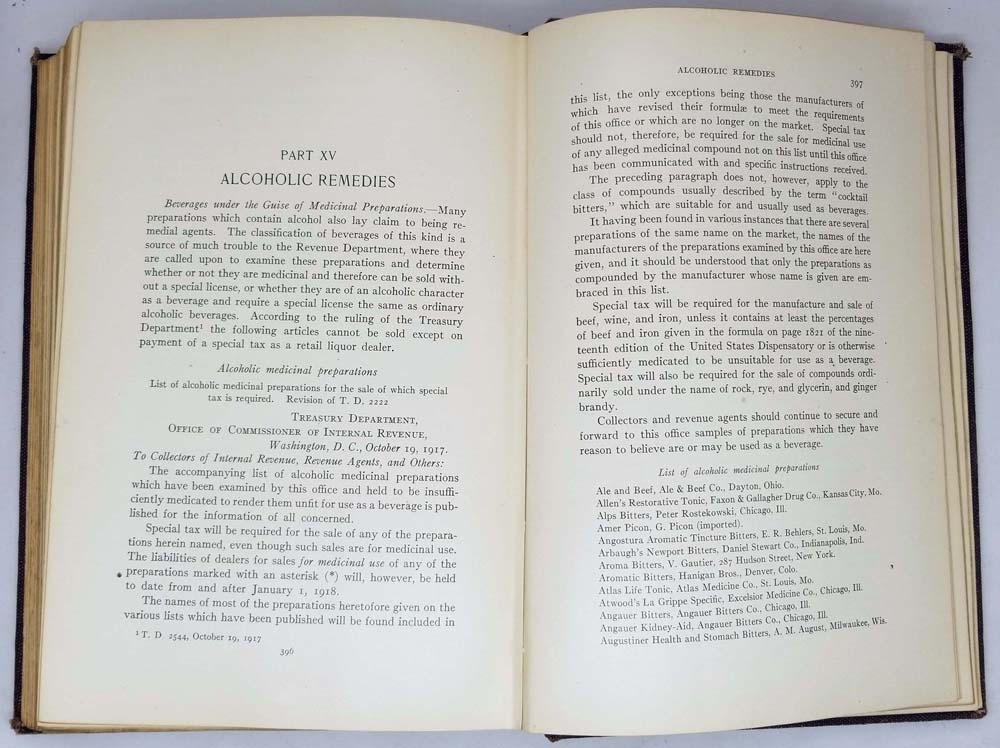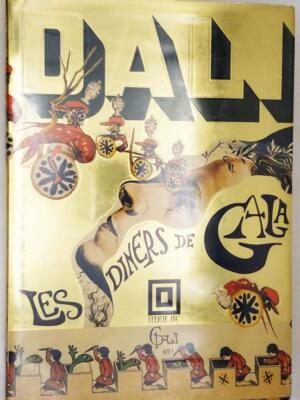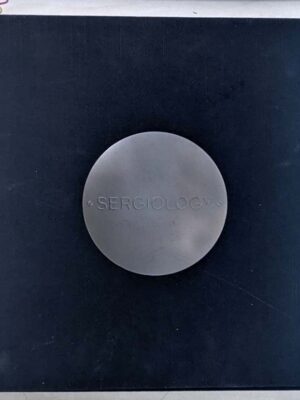Beverages and Their Adulteration (1919) by Harvey W. Wiley—a pioneering chemist and the “father of the FDA”—is a landmark exposé on the rampant fraud and dangerous practices in the early 20th-century beverage industry. Published just a decade after Wiley’s crusade led to the Pure Food and Drug Act of 1906, this scientific treatise meticulously documents how common drinks—from coffee and tea to milk, whiskey, and fruit juices—were diluted, contaminated, or laced with toxic additives (like lead, formaldehyde, or synthetic dyes) to boost profits.
Wiley’s writing blends forensic chemistry with moral urgency, revealing:
-
Coffee mixed with burnt grains or sawdust.
-
Milk watered down and doctored with chalk or borax.
-
Wine and liquor flavored with industrial alcohols or sulfuric acid.
The book also advocates for consumer protection and honest labeling, reflecting Wiley’s lifelong battle against corporate greed. A fascinating relic of the Progressive Era, it remains a stark reminder of why food safety regulations matter.
